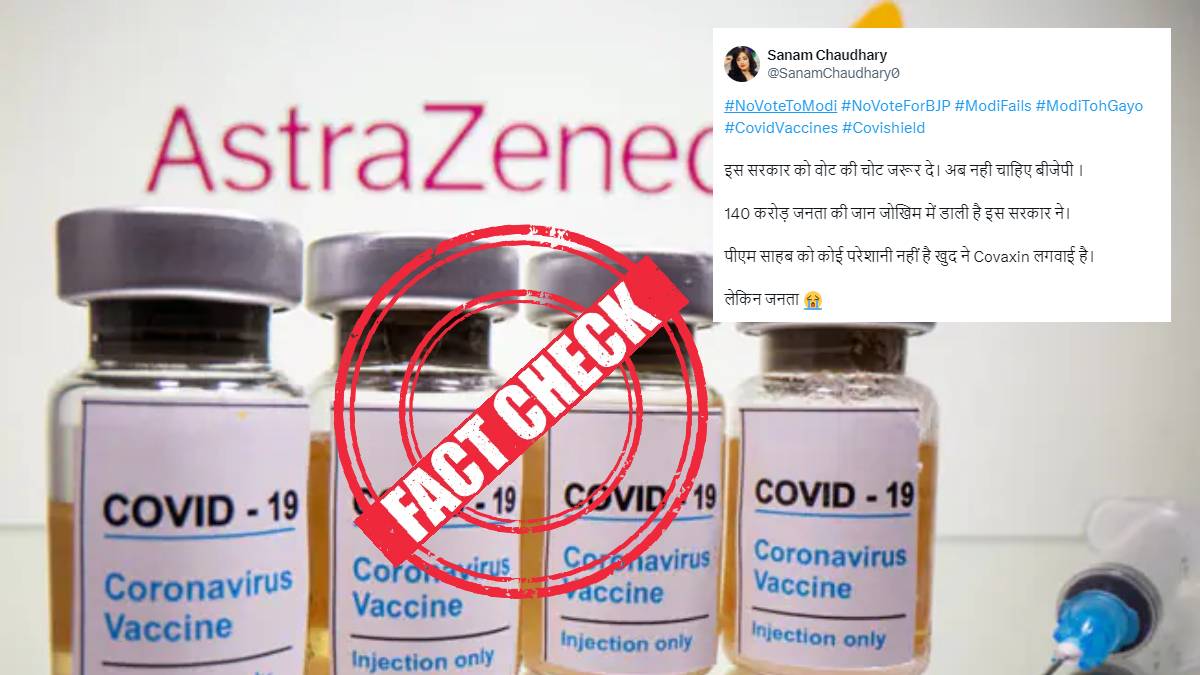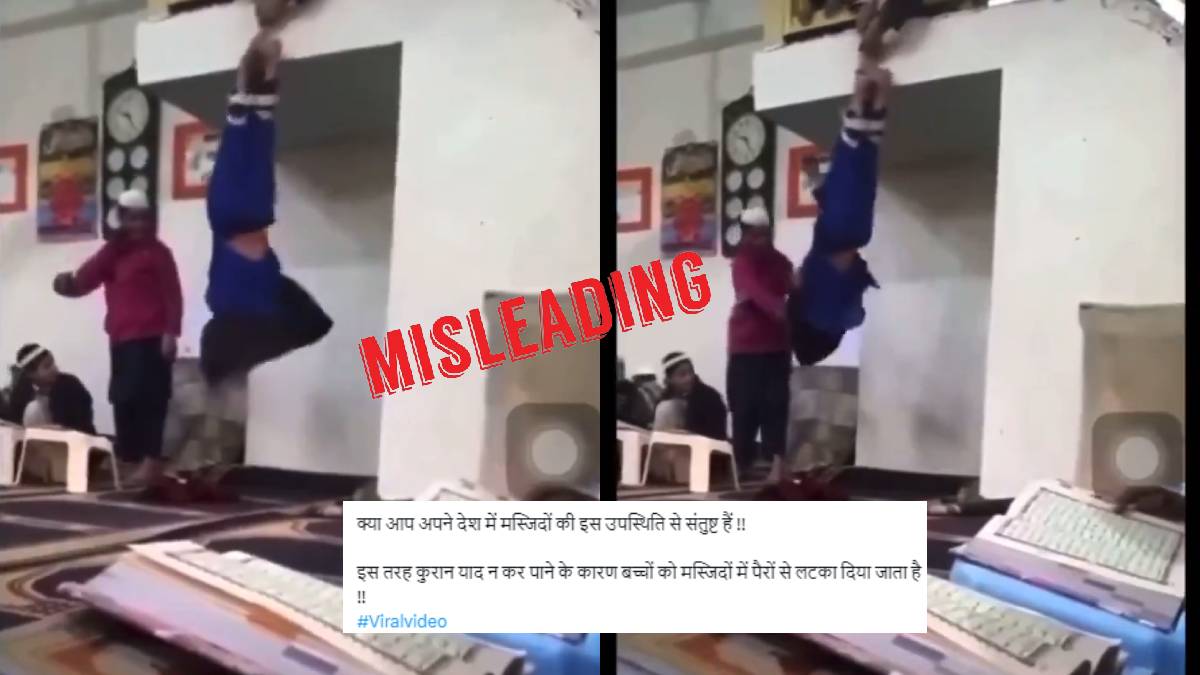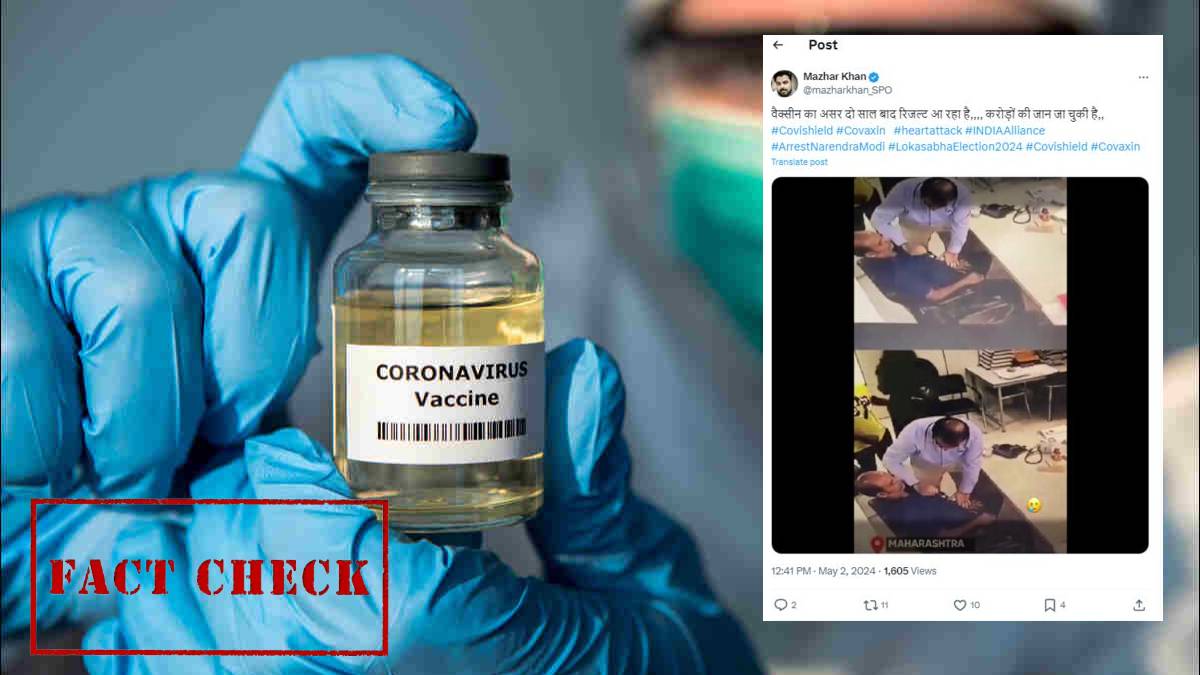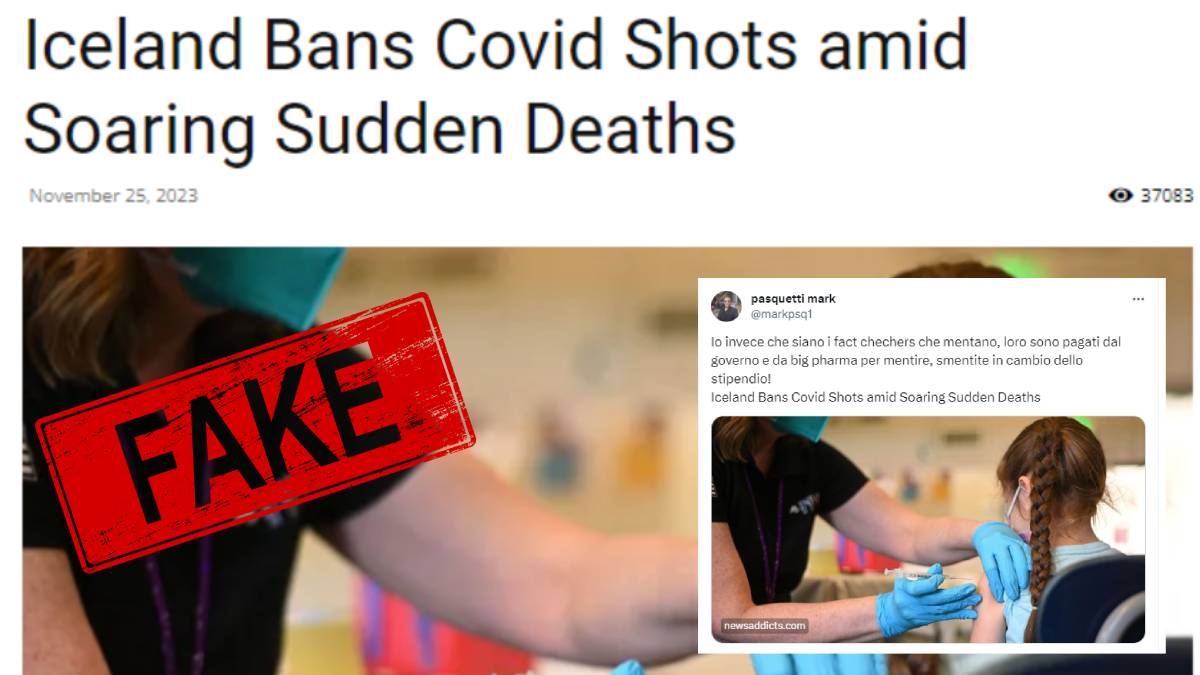THIP: Leading vaccine maker Astra Zeneca’s accepted in a legal submission that their Covid vaccine can cause TTS (a condition that may cause blood clot and low platelet count). Following the news a lot of social media users posted blaming the Indian Govt. for allowing Covishield, Astra Zeneca’s Indian version of the Covid vaccine, in the country. The posts claimed most Indians are at risk of TTS now. Our fact-checking indicates that the claim is only Half True. While the risk of TTS is true, the probability is “very rare”.
Claim:
The Indian government has been accused in multiple social media posts for allowing Covishield vaccine in the country and putting people at risk for vaccination-induced Thrombosis with Thrombocytopenia Syndrome(TTS). This allegation stems from AstraZeneca’s acknowledgment in UK court about the fact that their vaccines can cause the rare side effect.
One such post blaming the Indian government was shared by X user Sanam Chaudhary.
Check the archive version of the post.
Investigation:
What is TTS? What are its symptoms?
Thrombosis with Thrombocytopenia Syndrome (TTS) is a serious health condition that causes low platelet count (thrombocytopenia) and clots blood (thrombosis) within the body. The condition is linked to adenovirus vector vaccines launched during Covid-19.
The noted symptoms of the condition range from shortness of breath, chest pain, leg swelling, severe and continuous headaches and stomach aches. Affected persons suffer from easy bruising.
Do AstraZeneca Covid vaccines cause Thrombosis with Thrombocytopenia Syndrome (TTS)?
Yes, but as a rare side effect. It is important to understand that as stated by the company and proven by earlier research that not everyone who was administered Astra Zeneca Covid vaccines will be affected with TTS.
The multinational pharmaceutical corporation AstraZeneca has admitted that its COVID-19 vaccine, AZD1222, may lead to a rare occurrence of decreased platelet levels and blood clot formation. AstraZeneca has acknowledged a connection between the vaccine and Thrombosis with Thrombocytopenia Syndrome (TTS), a medical condition distinguished by unusually low platelet levels and the development of blood clots. This statement comes in answer to lawsuits filed against the company in UK court. This is the same vaccine that is manufactured under the name Covishield in India.
The company has mentioned in its legal papers that though there is a chance for TTS to occur, it is “rare” and “uncommon”.
How do Covishield and AstraZeneca relate to each other?
AstraZeneca, a British-Swedish pharmaceutical company, developed the COVID-19 vaccine in collaboration with Oxford University. The same vaccine is licensed for manufacture by the Serum Institute of India under the brand name Covishield. In Europe the vaccine is sold under the brand name Vaxzevria. In short, both vaccines are identical in their formulation but are manufactured and distributed in different geographies.
AstraZeneca’s vaccine is categorised under adenovirus vector vaccine. Based on clinical trials, both of these vaccinations show 60–80% protection against COVID-19 infection beginning two weeks following the second dosage.
Is Astra Zeneca vaccine the only vaccine related to Thrombosis with Thrombocytopenia Syndrome (TTS) ?
No. TTS is linked to other Covid vaccines too. Johnson & Johnson’s Covid vaccine named Janssen has also been linked with the condition. In 2023 World Health Organization (WHO) noted TTS as a adverse effect to adenovirus vector based vaccines.
In a 2023 report by Yale Medicine hematologist Robert Bona, MD, explained, “Those clots typically occur in individuals who are bedridden, hospitalized, or have other medical issues related to inflammation, infection, or cancer.”
So, the current revelation is not completely new.
Is the Covishield-vaccinated Indian population at risk of acquiring TTS?
A little. But there is still no reason to panic.
It should be made clear that Covishield, the Indian version of AstraZeneca, is the most widely administered Indian vaccine. There had been a limited number of cases of TTS so far reported across the country in the last few years. If there were large-scale deaths due to TTS resulting from vaccination, it surely would have been noticed and reported in the media.
It also needs to be understood that Thrombosis with Thrombocytopenia syndrome (TTS), including vaccine-induced immune thrombotic thrombocytopenia (VITT), is an extremely rare side-effect mostly seen post-initial vaccination. Earlier research has also shown that other vaccine-induced complications like CVST, has not yet been documented in India despite the widespread use of Covishield.
Vaccinations have been demonstrated to be highly effective and safe in halting the COVID-19 pandemic; however, there is a remote chance of rare adverse effects such as TTS and VITT. Early diagnosis and prompt intervention are key for patient management. It should be emphasized that the safety profiles of the vaccines are meticulously monitored by the regulatory authorities.
Saying that all Indians are at risk of dying due to Thrombosis with Thrombocytopenia syndrome (TTS), and that it has been a government failure, is an exaggeration of the entire situation and misleading.
The Healthy Indian Project (THIP) is a member of World Health Organization’s Vaccine Safety Net (VSN) and provides accurate information about vaccines. We have already fact-checked the accuracy of several COVID vaccination-related claims that have been circulated on social media. These mostly include the claims that vaccines are poisonous, harmful for the brain, and are more damaging than preventive.
Is side-effect a common thing with all vaccines?
Yes. Mild side effects are not very uncommon for most vaccines. But these side effects like fever and pain are temporary. In case of vaccinations most medical professionals believe the side effects are far lesser compared to the benefits the vaccines provide.
As per the website of World Health Organization (WHO), “Vaccines are very safe. Like any medicine, vaccines can cause side effects. However, these are usually very minor and of short duration, such as a sore arm or a mild fever. More serious side effects are possible but extremely rare”.
Should you be concerned if you are vaccinated with Covishield?
No. As of now, there is no reason to panic.
Dr. Jayadevan, Co-Chairman of the National Indian Medical Association (IMA) Covid Task Force in Kerala, told ANI, “It’s a rare occurrence following specific types of vaccines and other causes.” Also, in rare cases when TTS is reported, it is mostly within the few weeks of vaccinations. So, stay vigilant and consult doctor in case you face any of the symptoms of TTS.
Conclusion: The Healthy Indian Project (THIP) found the claim to be ‘half true’.












